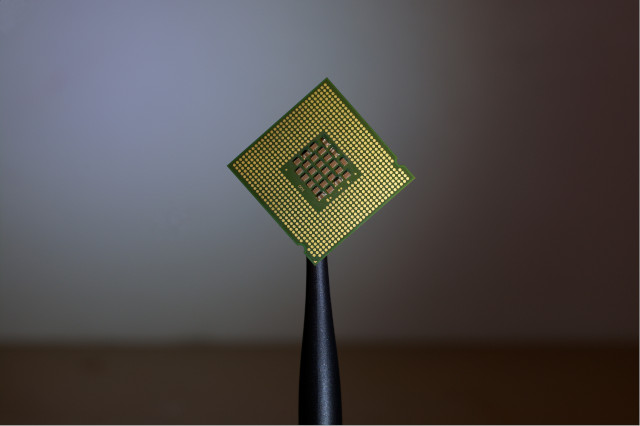
CPUs are the main story this week. As companies like AMD develop better processors and better manufacturing methods, former CPU champ Intel is finding ways to divest. The company purchased another AI company to add to their Movidius unit. Can Intel fend off AMD and companies like Foxconn (who are supporting China’s agenda of creating their own processors)?
Cisco’s strategy to focus on software seems to be paying off as the company saw growth of 6% over last year.
Acquisitions
- Intel buys deep-learning startup Vertex.AI to join its Movidius unit
Vertex says that Intel will continue to develop PlaidML as an open source project (see its Github page here), where it will continue to support a variety of hardware under an Apache 2.0 license with an Intel nGraph backend. “We are excited to advance flexible deep learning for edge computing as part of Intel,” the company said.
Intel, once a pace-setter and leader in the computing industry on the strength of its processors, has lost some momentum amid a new wave of companies building processors for mobile and other next-generation devices.
- Amazon in Running to Acquire Landmark Movie Chain
Pushing into movie theaters would follow Amazon’s expansion into myriad other forms of media, including a film and TV studio and music service. With Landmark, it gets a chain focused on independent and foreign films that was founded in 1974. The company has more than 50 theaters, including high-profile locations in New York, Philadelphia, Chicago, Los Angeles and San Francisco, with about 250 screens in 27 markets.
Artificial Intelligence
- IBM pushes back on negative Watson Health stories
In response to the claims, Kelly noted a number of positives for the company, including a Mayo Clinic poster presentation showing improved enrollment in breast cancer trials following implementation of Watson for Clinical Trial Matching and training from Memorial Sloan Kettering on 13 different cancers, which he says represents 80% of the global cancer incidence and prevalence.
Kelly also noted an extended contract with the Dept. of Veterans Affairs, research showing that its Watson for Genomics found new actionable mutations in 32% of patients and high rates of concordance in breast cancer at Manipal Hospital’s multidisciplinary tumor board.
https://www.massdevice.com/ibm-pushes-back-on-negative-watson-health-stories/
Cloud
- Google defends controversial China project in meeting with employees
“Our stated mission is to organize the world’s information,” Pichai added. “China is one-fifth of the world’s population. I think if we were to do our mission well, I think we have to think seriously about how we do more in China. I genuinely do believe we have a positive impact when we engage around the world and I don’t see any reason why that would be different in China.”
https://www.theverge.com/2018/8/16/17707324/google-china-search-engine-censorship-response-meeting
Security
- Teen Allegedly Hacked Into Apple’s Network, Got Caught With ‘Hacky Hack Hack’ Folder
It’s unclear whether the data he accessed was particularly sensitive. Apple caught the teen and alerted the FBI, which in turn worked with the Australian Federal Police (AFP) to track down the hacker. Authorities seized two laptops, a phone, and a hard drive. They found a folder on one of his computers titled “Hacky Hack Hack,” according to reports.
https://motherboard.vice.com/en_us/article/mb44nn/autralian-teen-hacked-apple-network
- FBI Is Reportedly Warning Banks That Hackers Are Planning to Make A Global Run on ATMs
“The FBI has obtained unspecified reporting indicating cyber criminals are planning to conduct a global Automated Teller Machine (ATM) cash-out scheme in the coming days, likely associated with an unknown card issuer breach and commonly referred to as an ‘unlimited operation,’” the FBI letter to banks reads.
Unlimited operations use malware to gain access to the card information of bank customers and access to the banks’ networks.
“The cyber criminals typically create fraudulent copies of legitimate cards by sending stolen card data to co-conspirators who imprint the data on reusable magnetic strip cards, such as gift cards purchased at retail stores,” the FBI letter said. “At a pre-determined time, the co-conspirators withdraw accounts funds from ATMs using these cards.”
Software/SaaS
- Cisco Extends Growth Streak on Strong Software Sales
Cisco’s streak—the company generated $12.84 billion in total revenue in its fiscal fourth quarter, up 6% from a year earlier—comes after two years of declines during which it faced increasing pressure from competitors while it relied heavily on slower-growth hardware sales.
And the company expects the run to continue, providing guidance that calls for revenue growth of between 5% and 7% in the current quarter.
Cisco has seen its financial fortunes improve, as it focused on software sales, particularly in the security arena. Revenue in its security segment revenue jumped 12% to $627 million.
https://www.wsj.com/articles/cisco-extends-growth-streak-on-strong-software-sales-1534377123
Datacenter/Hardware
- AMD Set to Crack Intel’s Lock on Data Centers
There is an opening for AMD because Intel has struggled to transition to a new chip-manufacturing process. One of the companies that makes AMD’s chips, Taiwan Semiconductor Manufacturing , or TSMC, has moved ahead of Intel and is producing the latest version of AMD’s Epyc server processor, which is expected to start shipping in volume next year. Intel doesn’t intend to launch a server chip based on its newest production process until sometime in 2020.
https://www.wsj.com/articles/amd-set-to-crack-intels-lock-on-data-centers-1534439566
- Foxconn Posts Unexpected Drop in Profit
Taiwan-based Foxconn said Monday that its net profit for the quarter ended June 30 was 17.5 billion New Taiwan dollars ($566.7 million). That compared with the NT$20.2 billion average estimate of analysts polled by S&P Capital IQ. Its net profit in the year-earlier quarter was NT$17.9 billion.
Foxconn, known formally as Hon Hai Precision Industry Co. 2317 0.12% , is the world’s largest contract electronics maker, and is best known for assembling Apple’s iPhones. Last year, Foxconn relied on Apple for about 54% of its revenue, according to Arthur Liao, an analyst at Fubon Research.
https://www.wsj.com/articles/foxconn-posts-unexpected-drop-in-profit-1534163275
- Foxconn Pursues Chip Ambitions With Plans for China Plant
Foxconn said it is developing plans within the partnership, which includes “other stakeholders” in the city. “We will be prepared to announce these plans when they have been finalized in the coming months,” the Taiwan-based company said.
The initiative comes at a time when China is spending billions of dollars to nurture its own semiconductor industry and reduce its reliance on foreign technology, an effort that has grown more urgent as its attempts to acquire U.S. chip companies have met opposition from the U.S. over national-security concerns.
Photo by Brian Kostiuk on Unsplash










